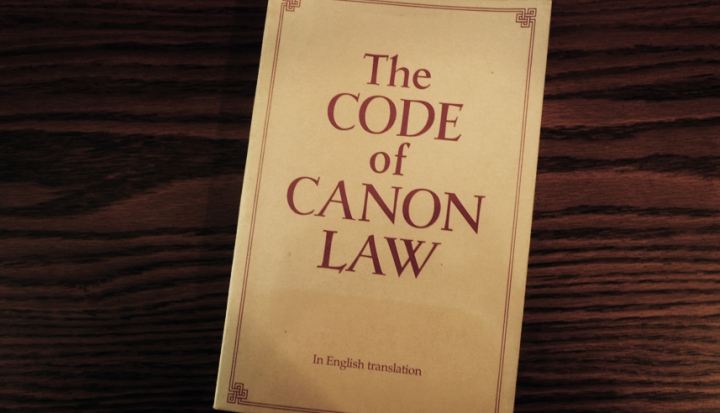In an interview with L'Osservatore Romano last month, Cardinal Francecso Coccopalmerio, president of the Pontifical Council for Legislative Texts, said that his council was working on a revision of Book Six of the Code of Canon Law, “On Sanctions.” The proposed changes would hopefully make the canonical penal process more accessible for bishops who wanted to bring canonical charges against priests who had sexually abused youngsters.
Although it generated some news at the time, the cardinal’s announcement really wasn’t anything new. Canonists have known that the Council for Legislative Texts has been working on a redraft of Book Six of the code since 2008. Not just Book Six, but the entire canonical penal or criminal process—which also covers parts of Book Seven, “On Processes”—needs a redraft.
To begin with, the canonical penal process as presented in the code is bulky and unwieldy, stretching as it does across two books of the code with its application requiring the canonist to jump back and forth between books. The canons are not even presented in chronological order in the sense that the canons that tell you what to do first would come before the canons that tell you what to do next. Rather, the process starts with Canon 1717, the accusation and preliminary investigation in Book Seven, and ends with Canon 1361, in Book Six, on the remission of penalties!
There is definitely work to be done in disentangling the canonical penal process so that it is more user-friendly. Indeed, back when the child sex abuse crisis first exploded, one of the reasons that the bishops gave for their failure to address the crisis properly was that the canonical penal process was too complicated to be useful against priest sex abusers. I am not sure how much weight that excuse actually carried, since the process was not tried and found wanting in those years—it simply was not tried. But the difficulty of the penal process was an excuse we heard a lot from the bishops in the late 1980s and 1990s.
I am not against using a canonical penal trial to end the ministry of a priest who sexually abuses a child, but I wonder if there is not another, easier way to handle this very serious problem. Canon law has a long history of recognizing certain acts as rendering a man impeded from receiving ordination, or, after ordination, of rendering him impeded from the exercise of holy orders. In the current code, these acts include things like murder and procuring an abortion.
Why not add to that list “sexual contact as an adult with a person under the age of 18"? We know that people who have this disorder are treatable, but not curable. Why keep them in ministry? Why even go through the process of a long penal trial, reinvolving the victim and the victim’s family in a replay of the terror they experienced?
Revising the Code of Canon Law’s convoluted penal process is certainly one way to proceed, but making child sexual abuse an impediment to priesthood is another, more direct and more effective, way to make St. John Paul II’s words come alive: “People need to know that there is no place in the priesthood for those who would harm the young.”
Image: Angela Cox













